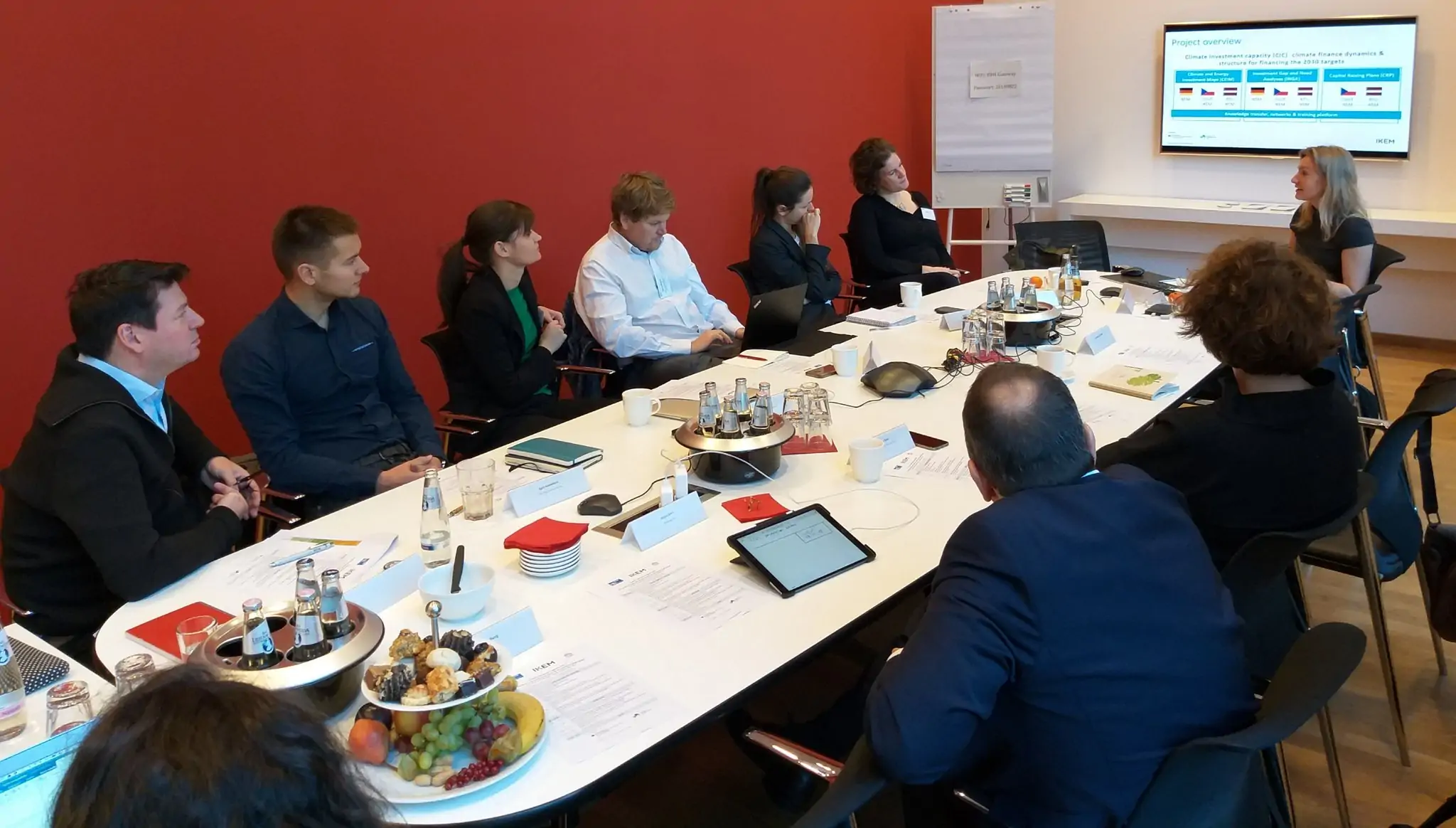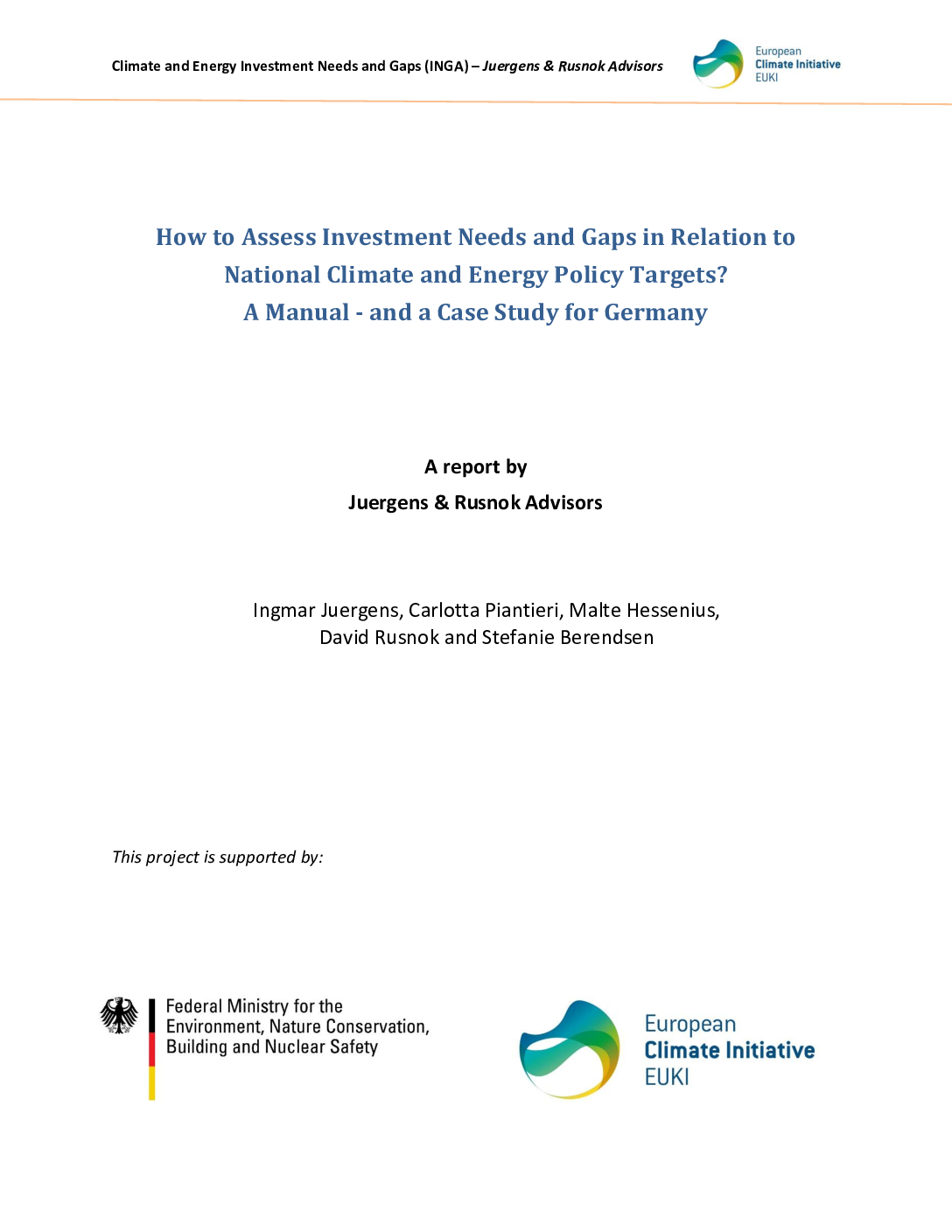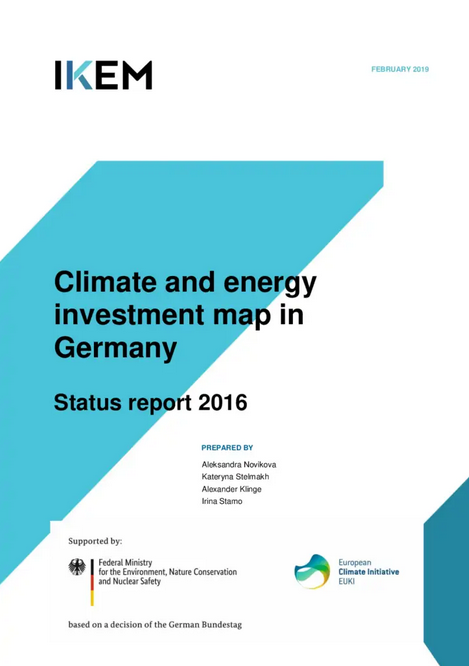CIC2030 – Strategies for Financing the 2030 Targets
The project is completed. The Climate Investment Capacity (CIC) project addressed challenges related to climate investment and it built new capacities in Latvia, the Czech Republic and Germany for this purpose. The starting point of the project was existing knowledge and experience in the field of climate investments and its mapping, which was transferred to other contexts with the help of implementing partners and adapted to the respective national circumstances.

Project info
Czech Republic, Germany, Latvia
09/18 - 02/21
-
568,113.00 €
Contact info
Aleksandra Novikova-Rodi
- Czech Technical University in Prague, Faculty of Electrical Engineering, Department of Economics,
- Riga Technical University (RTU IESE)
Project
As its main outcome, the project will provide the target countries’ public and financial sectors with the skills needed to address their domestic investment challenge. Using a learning-by-doing approach, the project produces analyses of the investment needed to reach the 2030 climate and energy targets, investment maps to track public finance and private investment flows into climate and energy transition actions, and capital-raising plans to close the gap between what is needed and current investment flows.

By co-designing these outputs with national target groups, the project addresses these groups’ needs and incorporates their data, expertise and knowledge, thus encouraging them to take ownership of the outputs and embed them in their decision-making processes. Drawing on this new knowledge and know-how, these target groups will be able to structure and quantitatively sketch the 2030 investment challenge, analyse the status quo and develop a strategy for raising capital.
Prepared in this way, the beneficiary countries will be in a better position to invest in low-carbon solutions, which in turn will contribute to the successful fulfilment of national plans for the 2030 targets. They will be able to inform the EU policy discourse regarding transparency in the implementation of the EU 2030 Climate and Energy Framework, in international climate commitments (e.g. the EU’s Nationally Determined Contributions under the Paris Agreement), and in EU and national public budget expenditure on climate-related action. This has the potential to inspire and shape both the EU level’s and EU Member States’ decisions on promoting sustainable finance.
Background
The EU’s Regulation on the Governance of the Energy Union requires Member States to design national energy and climate plans, the implementation of which requires the mobilisation of significant capital by 2030. While Czechia and Latvia have introduced a package of financial incentives and fiscal policies to stimulate investment in the decarbonisation of their economies, the impact of these packages remains insufficient for meeting the ambitious energy and climate targets set. At the national and local levels, know-how on the structuring of viable projects and experience of mobilising significant private capital are limited, and the Member States need new knowledge and capacity if they are to raise this capital
Last update: July 2024


